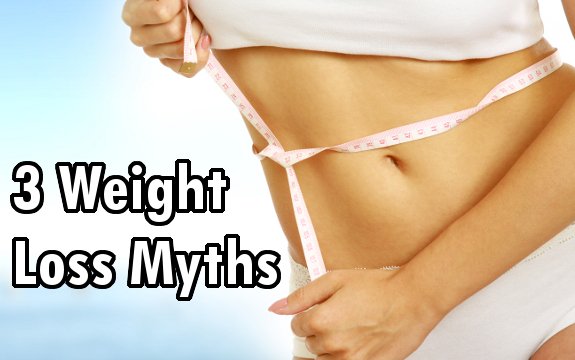3 Weight Loss Myths that may Be Holding You Back

 There is no shortage of weight loss advice floating around. From your friends to the television and all across the Internet—everyone seems to be an expert on weight loss tips. Still, over 35% of Americans over the age of 20 are considered obese, indicating that not all of the advice out there is sage wisdom.
There is no shortage of weight loss advice floating around. From your friends to the television and all across the Internet—everyone seems to be an expert on weight loss tips. Still, over 35% of Americans over the age of 20 are considered obese, indicating that not all of the advice out there is sage wisdom.
Weight loss is a complicated issue, particularly if you’ve battled with excess weight your whole life. If you ask people who have had long-term weight loss success, they’ll tell you that “something just clicked” and while weight loss wasn’t easy after that light-bulb moment, it became less of an uphill battle and more of a triumphant mission.
Whether you have five or 25 pounds to lose, the amount of information out there can be overwhelming and much of it conflicting. Here are just a few of the weight loss myths you may want to steer clear of:
Myth #1: Start Your Day with a Low-Calorie Breakfast
Many people recommend you wake and have a light breakfast to start your day. Registered dietician Tamara Duker Freuman says this is counterproductive. She writes:
“Denying your body the calories and readily accessible energy (carbs!) it needs to confront its most active time of day produces a deficit. Your body will demand re-payment of this deficit later on in the day – in the form of extreme hunger and intense cravings for carbs that hit you at precisely the time of day your body is least efficient at burning it: at night, in front of the TV.”
Myth #2: Eliminating Entire Food Groups can Aid in Weight Loss
There are countless “diets” out there that recommend you steer clear of an entire group of food. But villianizing food groups can be unsustainable and frustrating. Essentially, you could be setting yourself up for failure. Rather than giving up all carbs, for example, try eliminating processed carbohydrates like breads, baked goods, and pasta. Opt for healthier carbohydrates like those found in fresh vegetables and whole grains including brown rice, quinoa, and legumes.
(Check out NaturalSociety’s weight loss category for more helpful weight loss tips).
Myth #3: Calories are the Whole Story
While creating a calorie deficit will help you lose weight (burning more than you consume), calories don’t tell the whole story. Foods affect your metabolism differently and 200 calories of chocolate cake will have a profoundly different effect than 200 calories of spinach, for instance. Calorie-counting doesn’t take into account the myriad of effects your food has on your body, including (perhaps most importantly), how it affects your blood sugar. Counting calories isn’t necessarily bad, but make sure you are making every calorie count.
